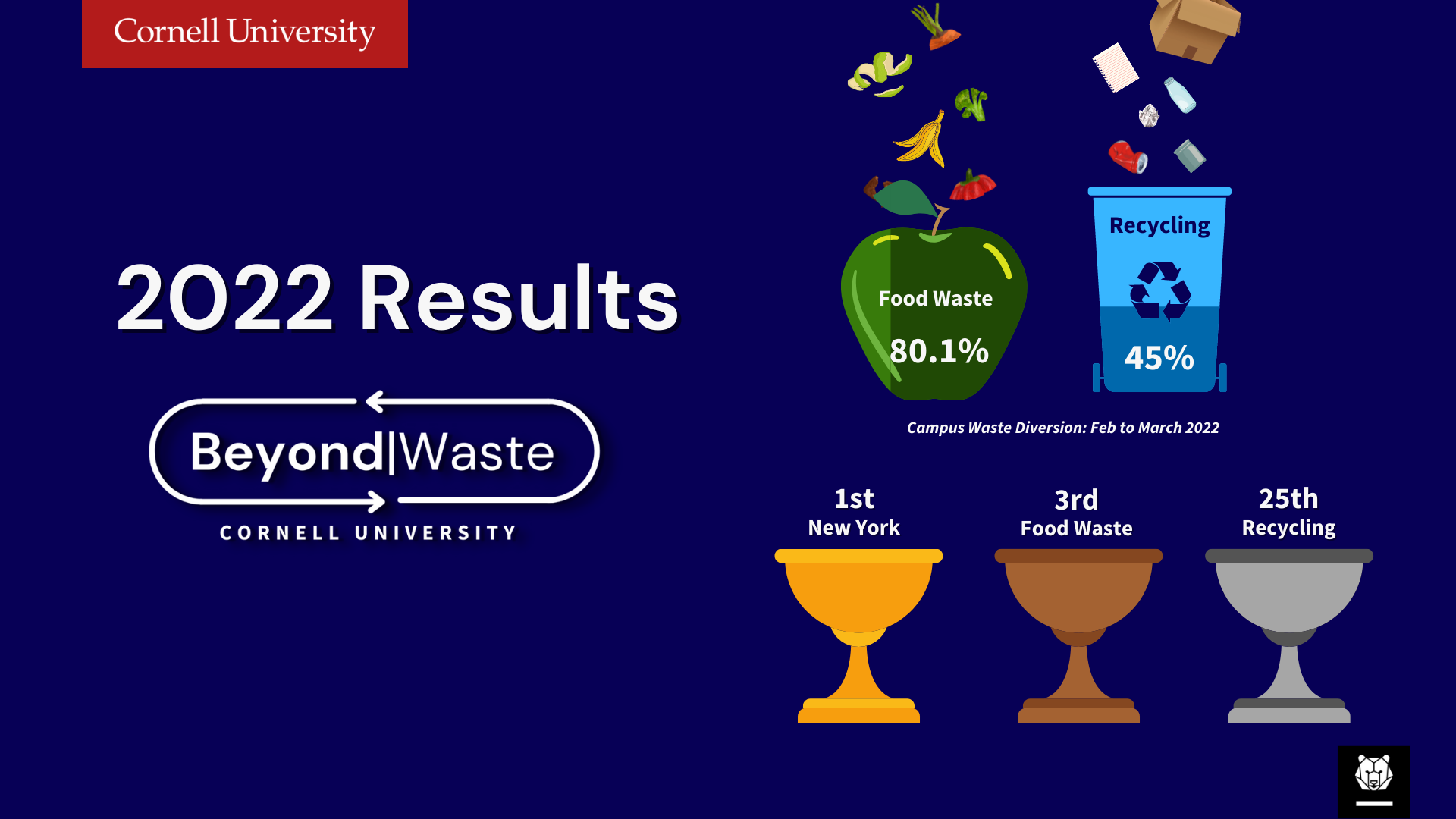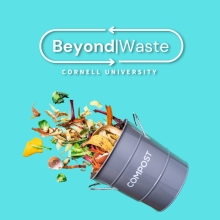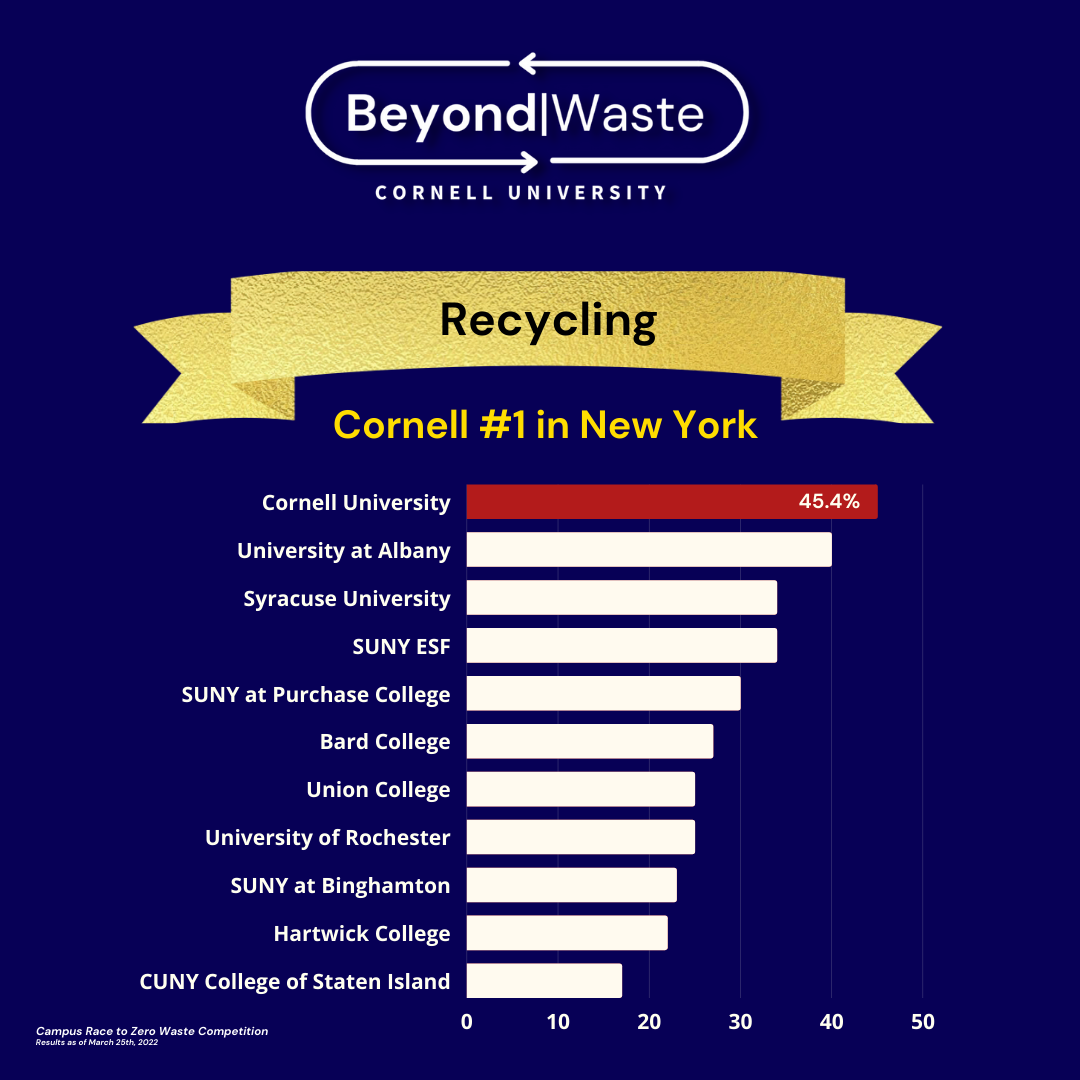Each spring, Cornellians participate in eight weeks of friendly competition to improve recycling and waste reduction on campus. This year, organizers of the newly rebranded Beyond Waste campaign set new goals for campus waste and saw results as Cornell improve both internal engagement and rankings in the national competition.
National Rankings
Cornell participates in the national Campus Race to Zero Waste competition which includes institutional waste tracking for the national competition.
Cornell rose in the national rankings this year, jumping to first in the nation for electronics recycling, first in New York State for overall waste diversion, third in the nation for the diversion of organic food waste, and twenty-fifth in the nation for landfill diversion (e.g. total food and recycling diversion).
Results by the Numbers
Food waste on campus is collected through drop-off locations for individual consumers at residential halls and other spots on campus, and behind the scenes in dining services locations.
During the competition, over 80% of food waste on campus was diverted from the landfill for use by Farm Services to make compost for agricultural and landscaping needs.
Recycling during the competition hovered at 45%, which is relatively high for a campus the size of the Cornell Ithaca campus, but could be improved by additional actions taken by individuals and departments to reduce landfill waste.
Events, workshops, and engagement results
Beyond Waste took place between February and March in 2022 with a goal of "empowering every member of the Cornell campus community to rethink our relationship to products we use every day." Beyond Waste invited community members to think about the steps they would need to take to move beyond recycling and "end of use" waste management to a creative life-cycle approach to how the campus purchases, uses, reuses, and disposes of goods and materials across systems.
The campaign touched 20,000 members of the Cornell community, with over 650 Cornellians directly participating in competitions, workshops, and campaigns.
Organized by student and professional staff in the Campus Sustainability Office with partnership from key student organizations such as Cornell Compost, the campaign held thirteen events ranging from training to become a residential compost manager to a Beyond Waste Prom that drew over fifty reusably-dressed students to a night of zero-waste celebration.


A keynote talk on Colonialism, Climate Change, Consumerism, and the Need for Collective Change with Aja Barber explored the connections between fashion waste, consumerism, and sustainability lifecycle impacts on communities in the U.S. and around the world.


The campaign also provided new resources for how to reduce waste on campus (note: reducing package purchases, improving the sustainability of meetings and events, and using reusable takeaway containers all have a big impact!)
Organizers also launched the new Sustainable Events Certification program, and a Compost Managers Appreciation Week recognizing the 60+ student volunteers who enable thousands of pounds of food-waste diversion in residential communities each year.
Next steps for campus waste
The Sustainable Cornell Council has identified reducing package deliveries and waste in residential communities as one of the key priorities for the coming year, 2022-2023.
Campus community members interested in this and other waste-reducing and materials management projects can get involved in the programs and projects listed below:
- Recycling Rules on Campus
- Improve Waste Bin Signage (Printable Posters & Signage)
- Opportunities for ReUse
- Sustainable Purchasing Resources
- Compost on Campus
- Cornell Compost Student Organization
- Swapp (an alternative recycling app made by Cornell students)





